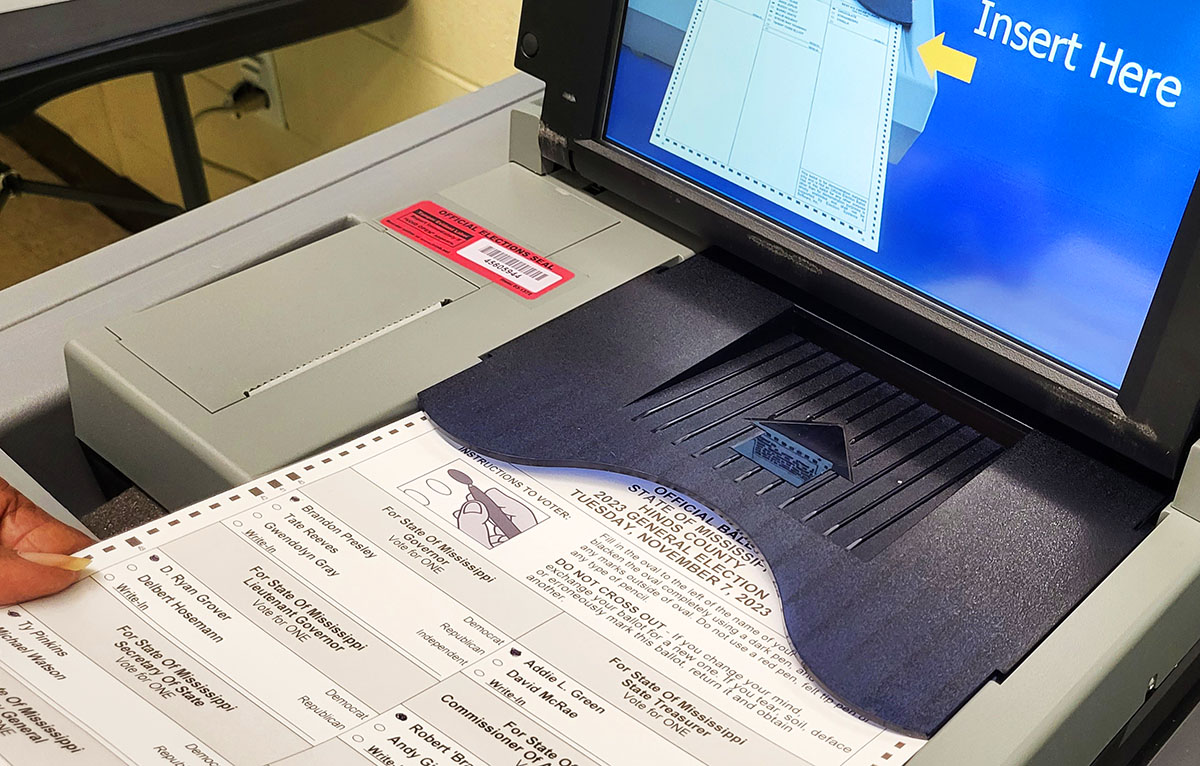Some Mississippi counties have opted to move away from traditional voting machines and voting software sold by large scale companies and, instead, transitioned to machines maintained by a nonprofit that focuses on making the mechanics of voting more transparent.
VotingWorks, a nonprofit company founded in 2018, first unveiled some of its voting machines in five counties in the Magnolia State, making rural Mississippi areas some of the first in the nation to purchase these types of voting machines and use “open-source” software. Now, the organization partners with around 14 jurisdictions in Mississippi for elections-related business.
Choctaw County was one of the handful of counties nationwide that first bought into the San Francisco-based nonprofit’s message.
The county’s circuit clerk, Amy Burdine, told Mississippi Today that she and the Choctaw County’s election commissioners recommended the county board of supervisors purchase equipment from VotingWorks because it was cost-effective, transparent and produced a paper ballot.
Burdine and other county officials initially tested a few of the voting machines out at some of the county’s precincts on a trial basis. After seeing the machines worked effectively, the county expanded and used the machines at all of its precincts.
The company separates itself from other legacy election software companies by disclosing everything, from its donors and financial information to the prices of its machines, on its website. VotingWorks machines are also made from off-the-shelf electronics, and in the long-run are cheaper than other voting machines.
VotingWorks co-founder Ben Adida told Mississippi Today that open-source software is actually more secure than traditional companies who closely guard their proprietary software.
The reason, he says, is that publicly available source code can be examined by anyone, and when more people examine something, it increases the chance of catching mistakes. Notably, the Department of Defense and other federal agencies are starting to use open-source software.
Transparent software, along with the user-friendly nature of the voting machines, is fundamental to rebuilding trust in voting equipment and could lead to restoring trust in election results, Adida says.
“If you’re running your elections, you expect the election to be transparent,” Adida said. “People have a right to understand now their votes are being counted and how their democracy functions.”
At the polling place, voters will mark their paper ballot by hand or by using an accessible ballot marking device, and cast their ballot using an optical scanner. If a question from the voting machine arises, local officials can access the paper ballots to check the results.

